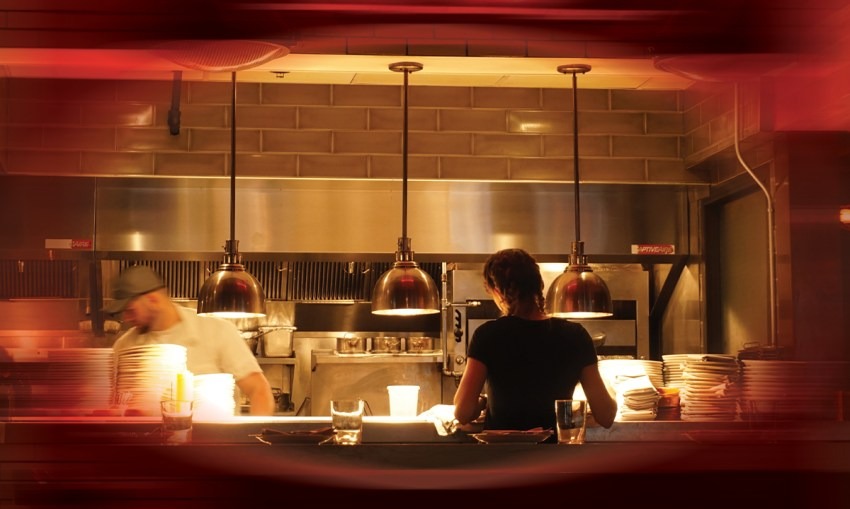‘They’re non-existent’: how hospo owners are working through the chef shortage

Hospitality owners say visa changes could help with the nationwide chef shortage, as businesses struggle to find quality cooks to keep their kitchens alive. CityMag checks in to see how this affects our locals in the middle of a cost-of-living crisis.
Joshua Rivers, whose hospitality businesses include CREAM, Landough’s, Remy’s Deep Dish Pizza & Bar and Diamond Burger, is experiencing the struggles of Australia’s nationwide chef shortage.
“I mean, they’re non-existent,” Joshua says.
“I think often, places will rely on cooks heavily because there’s not enough qualified chefs – not that chefs are always needed… a fair swag at times, a cook is just as good as a chef.
“There is absolutely – even when we’re talking cooks – there’s a shortage in terms of anyone who wants to be in the kitchen who has a decent skill set.
“It’s to the point where I’m trying to hire another barista so I can move back into the kitchen at CREAM, because I just can’t find anyone to do the job in the kitchen there.”
CityMag has been investigating the many factors that have played a part in South Australia’s changing hospitality landscape, with venues closing daily, citing issues like payroll tax, the cost-of-living crisis and changing consumer habits.
While Australia is experiencing a nationwide chef shortage, as hospo owners try to staff their kitchens with qualified cooks, according to the Occupation Shortage List South Australia has a shortage of chefs, pastry cooks and bakers – but not cooks.
Joshua says he’s “lucky” to have those short-order cooking skills as he’s able to step into the kitchen when needed, but fears for businesses without that luxury.
“There’s plenty of places that don’t, and you’re seeing it now where these places are closing for the day because they don’t have a cook, or they don’t have a chef because the owner doesn’t have that skill set,” he says.
“I’m safeguarded from that, but you see that a lot.”

Joshua, Chimere and Lando Rivers before opening up Landoughs in Brighton. This picture: Claudia Dichiera.
The owner of The Cooks Pantry – a 16-year-old café in Grange that closed last month – says not being able to find quality chefs contributed to its closure, along with personal and cost of living reasons.
Owner and chef James Bodroghy says there was no one else that “could do [his job] in the kitchen” and it was a “real push to keep going” and continue working.
What attracted James to the industry “back in the 80s” was the culture of hospitality.
“When I started, it was fun, and there was a level of professionalism. Going to work and doing a shift – there was a vibe,” he says.
You might like
“I think some changes with regard to more takeaway, more delivery services, it’s just changed the vibe, for one of a better word, a little bit.
“That’s perhaps why they don’t stay in it. It’s always been hard work. But I guess there are other options out there that aren’t hard.”
Joshua says another reason the chef shortage is occurring is because of the “fucked” state of the hospitality industry right now.
He also struggles to find “career orientated hospitality individuals” as “no one sees this as a long-term gig anymore”.
“Why would you go to a trade school and be a chef when you could be an electrician or a plumber and make $120,000 a year, and you start work at 9am, you take smoke-o at 10:30am, then you’re home by three o’clock and on a Friday, you piss off, have beers,” he says.
“Or you go be a chef, and you do 60 to 70 hours a week… for 60 to 70 grand a year and nine times out of 10 it’s some dickhead employer who rips you off and doesn’t pay your super on time or doesn’t pay the correct rate.
“This is a tough slog. It’s now down to the people who really love food or do it because they don’t have any other choice. The pool is becoming smaller.
“We don’t make enough money to pay exuberant wages, we barely make enough money to break even right now the economy’s so poor, and the general public don’t have enough money for us to put up our prices.
“It’s this vicious cycle that everyone’s stuck in right now.”

James Bodroghy before closing The Cooks Pantry in October. This picture: Claudia Dichiera.
What can be done?
When asked what the government could do to help with the chef shortage in Australia, Joshua recommends removing “the stupid visa restrictions”.
“It’s just dumb. It’s not helping anyone,” he says.
“Unless there are a whole bunch of hidden Australians looking for jobs, and if that’s the case, then show us where they are because I’ll go hire them right now.”
Joshua wants to see a change in certain visa policies – such as the student visa – that restricts people to a maximum of 24 hours a week.
As of 2021, the median age of people on student visas was 26.
“It’s fucking horrendous,” Joshua says.
“The visas are so stupid because the ideology is like ‘oh, we’re going to protect the jobs for Australians’ – Australians don’t want to work. Australians are the worst. We are, hands down, the worst people. They don’t want to work. They’re lazy.
“And the guys who do want to work are restricted to 24 hours a week. That’s not enough for them to survive, and quite often, they’re trying to support a family.
“And then everyone gets fucked: the employer, the employee… it’s stupid. It’s dumb.
“They don’t want to listen to the actual people in the industry.”
Joshua says because of this shortage, the small pool of available workers makes it competitive with other businesses.
“If there’s 10 restaurants and there’s only five workers, that’s why people are getting fucked, because there’s not enough workers for how many restaurants we have as there’s a shortage across everywhere,” Joshua says.
Also, some skilled visa applications place approval priority on specific occupations as determined by the Department of Home Affairs.
Subscribe for updates
Priority was previously based on a Priority Migration Skilled Occupations List (PMSOL), which contained 44 occupations specifically chosen to support shortages arising from COVID, and assist in Australia’s economic recovery from the pandemic.
The PMSOL included chefs, meaning they were given priority when applying for visas.
In December 2023, a new direction from the government removed consideration of the PMSOL, and instead placed top priority on occupations such as healthcare and teaching under employer-sponsored visas.
For James, this affected his business directly.
“We, as restauranteurs, relied on all those foreign students as workers in kitchens,” James says.
“So that dried up a little bit and we found it quite hard to get chefs. Fortunately, I am a chef, but if I wasn’t, it would be really difficult to staff a kitchen.
“I’ve got friends who run big kitchens, and that’s probably one of the things they spend the most time on – recruiting and training.”

The Port Admiral Hotel. This picture: Angus Kiley.
Simone Douglas, co-owner of The Duke of Brunswick and The Port Admiral Hotel, also says a recent “change to the [chef] salary thresholds to be able to sponsor people” has affected their ability to find chefs.
“Someone comes out here, studies to be a chef… ultimately they want to attain permanent residency,” Simone says.
In 2023, the Australian Government increased the Temporary Skilled Migration Income Threshold from $53,900 to $70,000, excluding superannuation. It was then increased to $73,150 in July 2024.
“Now that’s fine if you’re a head chef or a second chef is basically in charge of the kitchen in the absence of the head chef,” she says.
“But no business – particularly not a small café – can afford to be paying $73,000 to $75,000 a year to a chef that’s basically a chef de partie: so comes in, supervisor tells them everything that they need to do.”
Simone says this is directly affecting her businesses.
“I actually just recently lost a chef myself because I wasn’t in a position in either of our businesses to sponsor them on that salary,” Simone says.
“So they had to apply elsewhere and go and work in a much larger organisation that had many more pubs that was in a position to do that.
“It wasn’t that the chef was unhappy. It wasn’t that [they] didn’t enjoy the work environment. But we lost a fantastic employee simply because of government legislation around immigration.”
The repercussions of this put “significant strain on [the] existing kitchen team in that venue”.
“The reality is… talent is thin on the ground. We’re probably going to go down the pathway of actually putting on some more apprentices, but that still puts stress on the kitchen while those apprentices come up to speed,” she says.
“So here we are, going into busy season. We’ve lost a chef that we didn’t need to lose if it wasn’t for government policy, and now the business is going to be under pressure to backfill that talent gap until we can help someone catch up.”
Can the government step in?
A spokesperson from the department for Immigration and Multicultural Affairs tells CityMag “prior to the increase to $70,000 in 2023, the TSMIT had not been raised since 2013”.
“The new threshold is approximately where the TSMIT would have been if it had been indexed to average weekly ordinary time earnings growth over the previous 11 years,” they say.
“The increased TSMIT has not adversely impacted the Temporary Skilled Shortage visa program. In fact, since the TSMIT was raised, the Temporary Skills Shortage program has seen an increase in lodgements.”
The spokesperson says changes to the TSMIT were widely consulted by government.
“Hospitality businesses in South Australia have a range of skilled visa options to sponsor the workers they need, including through the South Australia Designated Area Migration Agreement (DAMA),” they say.
This was introduced to address skills shortages across the Adelaide Metropolitan region.
“Concessions on the Temporary Skilled Migration Income Threshold (TSMIT) are available through the DAMA and also the labour agreement program,” they say.

